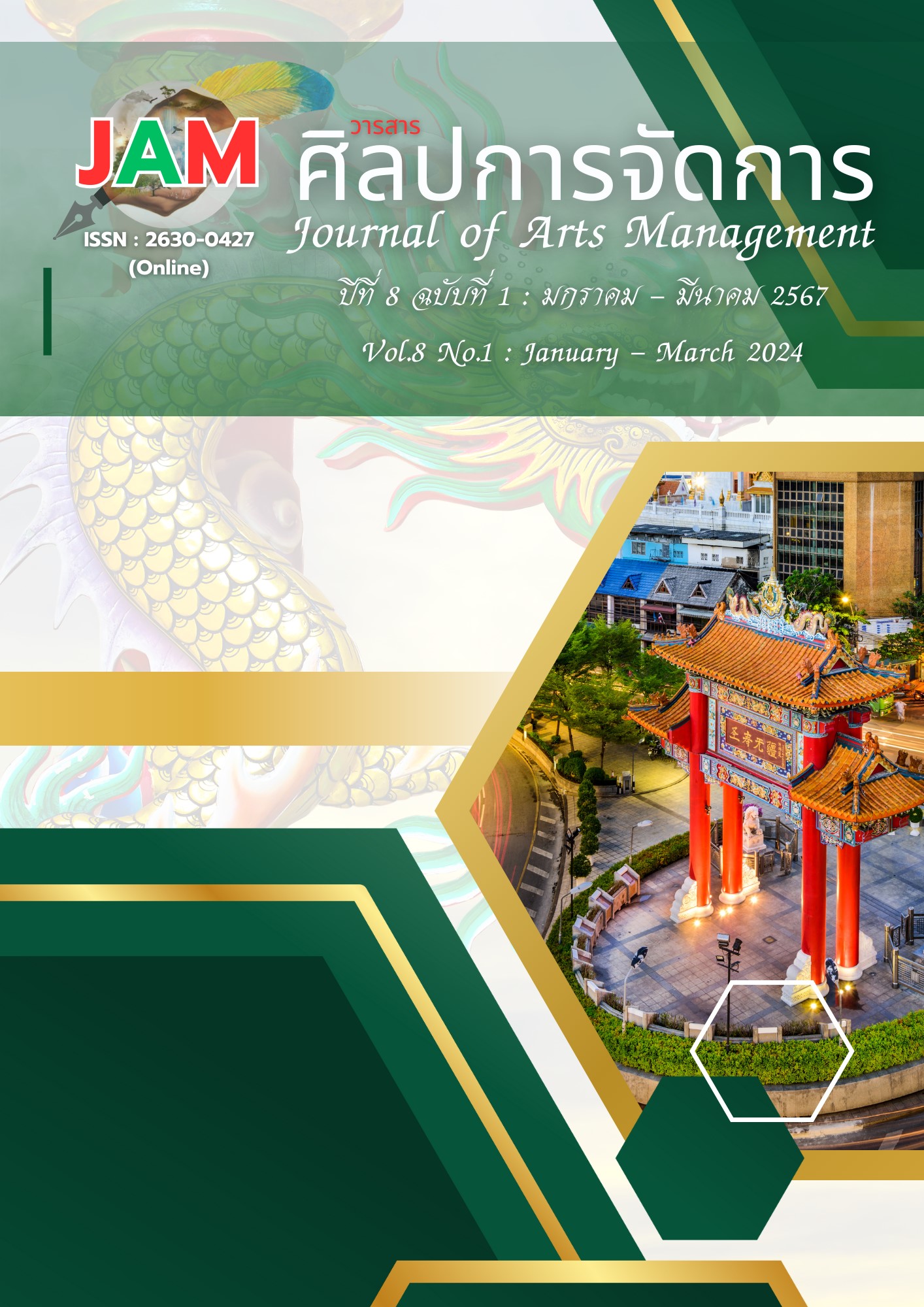A Model for the Development of the Teacher Professional Learning Community Process of the Teacher Professional Internship Students, Faculty of Education, Nakhon Sawan Rajabhat University, By Promotional Activities on Professional Learning Community for Professional Ethics Development Via Information Technology System
Main Article Content
Abstract
This research aimed to (1) study the process of the professional learning community for teachers of teaching professional training students and (2) study guidelines for developing the process of learning communities. and 3) study teachers' opinions towards the teaching professional learning community process of teachers' professional training students, Faculty of Education. Nakhon Sawan Rajabhat University activities to promote the professional learning community process to develop professional ethics through information technology systems. The research findings revealed the following:
1) Components of developing the learning community process with activities to promote the professional learning community process to develop professional ethics through information technology systems, there are 11 elements, including 1.1) supporting education, 1.2) creating leadership, 1.3) exchanging experiences, 1.4) creating values, 1.5) Being a joint leader 1.6) Creating a conducive environment; 1.7) Creating a shared vision 1.8) Learning together; 1.9) Exchanging according to the era 1.10) Setting learning standards and 1.11) Application
2) Model for developing the process of a community of professional learning for teachers practicing professional experience in the Faculty of Education. Nakhon Sawan Rajabhat University activities to promote the professional learning community process to develop professional ethics through the information technology system, consisting of an introduction section, content section, and application section.
3) Evaluation of the model for developing the process of a teaching professional learning community for teachers' professional training students in the Faculty of Education. Nakhon Sawan Rajabhat University activities to promote the professional learning community process to develop professional ethics through information technology systems. Overall, it is at a high level.
Article Details

This work is licensed under a Creative Commons Attribution-NonCommercial-NoDerivatives 4.0 International License.
Views and opinions appearing in articles in the Journal of Arts of Management It is the responsibility of the author of the article. and does not constitute the view and responsibility of the editorial team I agree that the article is copyright of the Arts and Management Journal.
References
Charungkiattikul, S. (2018, March 13). The Twenty-First Century Skills. https://www.trueplookpanya.com/education/content/66054/teaarteduteaartteaarttea-.
Chookamnerd, W., Sungthong, E., & Kerdthip, C. (2014). A Model of a Professional Learning Community of Teachers Toward 21 st Century Learning of Schools in Thailand. Hatyai Journal, 12(2), 123-134.
Ditjaroen, S. (2019). The Model of Administrative a Professional Learning Communities in Educational Opportunity Expansion Schools under Basic Education Commission Office. Journal of Graduate Review Nakhon Sawan Buddhist College, 7(3), 345-360.
Fullan, M. (1999). Change Forces: The Sequel. Falmer Press.
Hord, S. (1997). Professional Learning Communities: What Are They and Why Are They Important?. Issues about Change, 6, 23-45.
Inthanam, N. (2013). Development of benchmarks for creating professional learning communities in schools[Doctoral Dissertation, Chulalongkorn University].
Leithwood, K., Jantzi, D., & Steinbach, R. (1999). Changing leadership for changing times. Open University Press.
Panich, W. (2011). Ways to create learning for students in the 21st century. Tathatha Publishing.
Panich, W. (2013). Skills of the new future: Education for the 21st century. Siam Commercial Foundation.
Phothirat, D. (2017). Setting learning standards and professional learning communities (PLC) and developing educational quality. Maha Sarakham Education Journal, 39(2), 206-219.
Senge, P. M. (1990). The Fifth Discipline: The Art and Practice of the Learning Organization. Doubleday.
Sergiovanni, T. (1994). Building community in schools. Jossey Bass.
Srisoi, S. (2019). Factors affecting teachers’ participation in educational institution management. SWU Journal of Education, 45(1), 147-161.
Thamromdee, S. et al. (2010). Arsom Silpa Research: Research and development of a learning community based on contemplative consciousness. Academic Document Project on Learning for Change No. 8. Amy Enterprises Co., Ltd.
Theparee, P. (2014). A Development of professional learning community model for the primary school teachers. Silpakorn Educational Research Journal, 6(2), 284-296.


